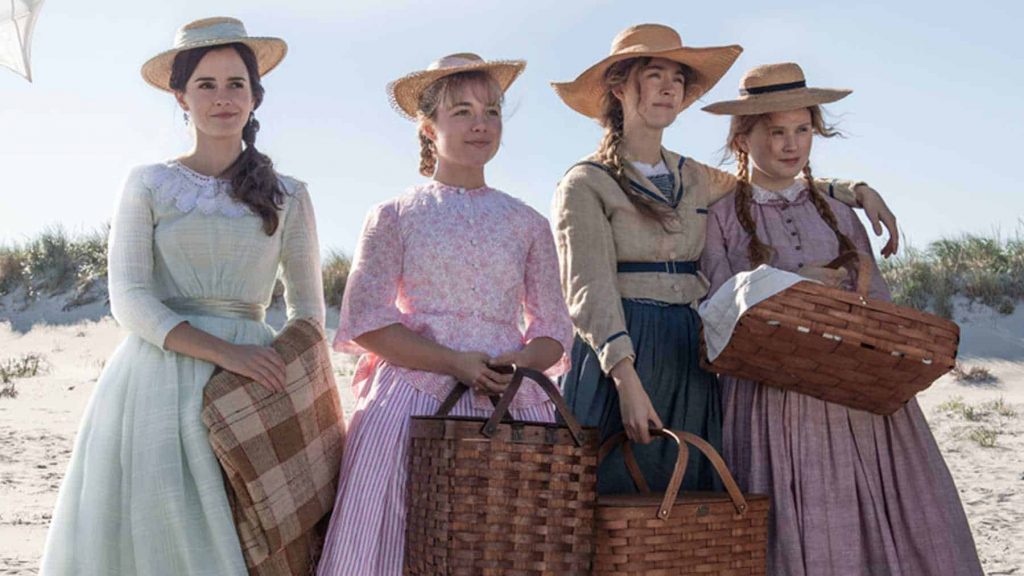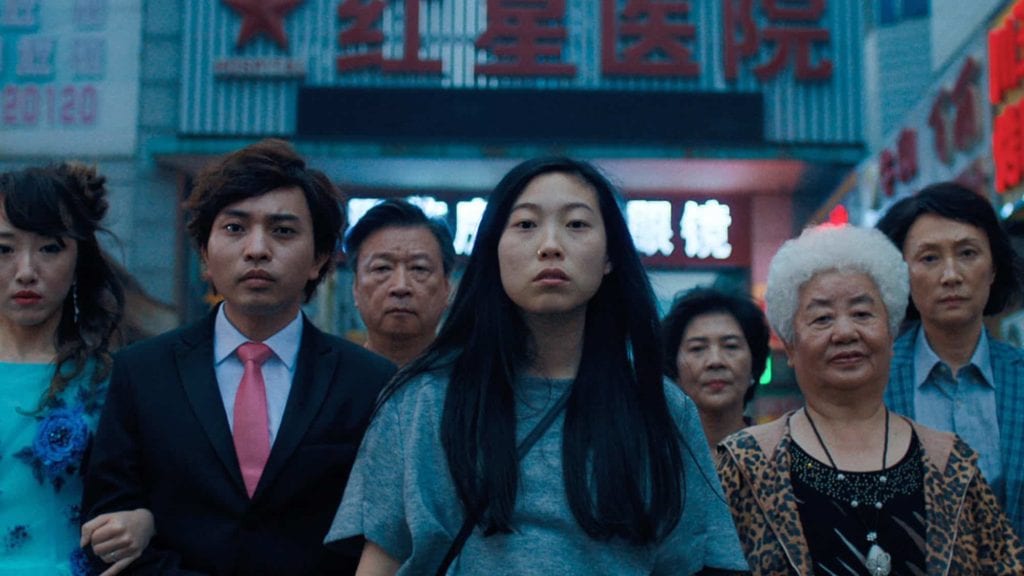Oscar Snubs Are A Yearly Reminder That Hollywood Isn’t Changing Fast Enough
One of the most recent films that I’ve watched is The Farewell, directed by Lulu Wang. The film tells the intimate and authentic story of a young woman who must come to terms with cultural differences and how they affect her family. It’s beautiful, heartbreaking and full of touching performances. And I’m certainly not the only person who has loved the film. With a near-perfect Rotten Tomatoes score and overwhelmingly positive reviews, it’s become a beloved movie for many. So, why was it an Oscar snub? It’s not because the film did poorly. The Oscars are a small glimpse into the art of filmmaking, awarding stories that we’ve all heard before. In fact, Oscar snubs such as The Farewell have just become a reminder that Hollywood isn’t ready to move forward with the rest of the world.
A Brief Glimpse Into The Oscar Snubs And Their Disregard For Women And POC
2020 Nominations & The Lack Of POC Representation
When the 2020 Oscar nominations were announced earlier this month, something was clearly missing. Despite some seemingly “diverse” movies, there were no female directors nominated. There was only one non-white actor nominated, with Cynthia Erivo’s nomination for Harriet. While her performance was strong, and the nomination well-deserved, it’s also worth noting that her role was as Harriett Tubman. The film focuses on freedom from slavery. It’s common for Oscar nominations to go to men and women of color for playing roles like these. While these stories need to be told, it’s time that roles (and nominations) can go to POC for playing any role, not just ones that The Academy is comfortable delegating to people.
The past year saw some amazing stories featuring non-white actors. This includes The Farewell. Watching Awkwafina win the Golden Globe for her performance was thrilling, and we had hoped that it meant she’d be earning an Oscar nomination. Another example is the cast of Parasite. Despite a handful of nominations, 0 of the actors from the film earned a nomination, while almost every other Best Picture nominated film had an actor nominated. Lupita Nyong’o (Us), Jennifer Lopez (Hustlers) and Eddie Murphy (Dolemite Is My Name) are all other examples of performers of color who have received nominations at other award ceremonies this year and delivered noteworthy performances.
Where Are All The Women?
Another commonly noticed problem with the 2020 Oscar nominations was the lack of female representation in the directing category. Greta Gerwig (Little Women) was in plenty of predictions when it came to who would be nominated for one of the most competitive awards. The film received a Best Picture nomination, yet Gerwig was still snubbed. She breathed new life into the story, and it’s hard to imagine the film being what it is without her in the director’s chair.
 Image via Sony Pictures.
Image via Sony Pictures.
People often cite a lack of female directors in general as a reason for the lack of women being nominated for these awards. However, that’s not exactly the case in 2020. While women tend to direct fewer big-budget movies (which we’ll discuss later), there are still plenty of women-directed films. Booksmart, Olivia Wilde’s directorial debut, was an indie darling this year. The film featured inspiring shots and showed true promise for Wilde. Yet it barely earned any recognition this awards season. Honey Boy, directed by Alma Har’el, was also a masterpiece of direction, yet received the same treatment. The list goes on. All that you have to do is look for them. Women-directed films aren’t missing, they’re just missing from the conversation. And there’s a reason for that.
Hollywood Keeps Pretending To Be Better
A few years ago, April Reign started the hashtag of #OscarsSoWhite to demonstrate how few POC were nominated. It was a bad year, but you could apply that hashtag to almost any year. The Academy then invited almost 800 new members with more diversity than the Academy had seen before. This new list was 39% female, and 30% non-white. And yeah, we’ve seen a few exciting nominations and wins since then. Moonlight won Best Picture in 2017. Get Out won Best Original Screenplay in 2018. But does it really mean anything if glaring omissions keep happening?
Whenever there is a controversy as big as #OscarsSoWhite, a.k.a. whenever someone draws attention to a problem that’s always existed, the Academy will do something showy to “solve” the problem. But this new list of nominations is proof that nothing foundational really changed. Members of The Academy can continue to speak up and claim that they support diversity, but they need to vote like it has. Greta Gerwig called attention to this in an interview with Jimmy Kimmel. She spoke about her lack of a directing nomination at the Golden Globes, and how members of the HFPA kept telling her that they had voted for her. “Well, you didn’t, because I didn’t get nominated.” She laughs it off, but it’s a reminder that people aren’t being honest with where their votes are going.
There Are People Out There Trying For Change
Frances McDormand won an Oscar in 2018 for her role in Three Billboards. Her empowering speech drew attention to all of the women in the room. She finished her speech with a passionate cry to everyone in the room: “I have two words for you: inclusion rider.” What this means is that actors (and other industry folks) can have a clause in their contracts that require the cast and crew to have a certain level of diversity amongst it. We commend McDormand for speaking up about this, though we wish there were more industry members proving that they would keep up with McDormand’s request.
Jordan Peele recently stirred up some “controversy” for saying that he doesn’t see himself casting a “white dude as the lead” in any of his upcoming films. Peele will be in the spotlight for the foreseeable future after his mega-hit with Get Out, so he definitely has a strong voice in Hollywood right now. For him to commit to creating stories about people whose stories aren’t being told is a big deal. Peele isn’t creating the stories that we’ve already watched or know. He’s changing the game and is happy to lead it with POC front and center. And we’re excited to see it. Though, we will say that Us was another sad Oscar snub.
An Insightful Voice From Within The Industry
Alma Har’el has been outspoken this season with her thoughts on the lack of diversity in Hollywood. In a guest column with Entertainment Weekly, she mentioned a female filmmaking friend being told that “out of your typical five directing award nominations, there may be only one spot for a woman or person of color. And that nomination will most likely go to the film that performed best at the box office because then they can’t dismiss it.” So, this rampant sexism is something that industry folks are aware of and seem to just sweep under the rug. Voices like Har’el are important because they draw attention from the inside, coming from somebody with something to lose.
Change for Har’el isn’t just about speaking up about racism and sexism in the industry. She draws attention to the wider range of diversity in awards categories at smaller ceremonies, like the Director’s Guild of America. This ceremony has begun creating new categories, like the Outstanding Achievement in First-Time Feature Film. When categories expand to not only accept, but encourage indie films and those coming from people who aren’t already A-listers, more types of stories get heard and awarded.
Using Privilege To Make Change
Stephen King has drawn some attention for his online reactions to the current diversity conversation. King is able to vote in the writing categories and the Best Picture category at the Oscars, so he does have some influence on the outcome. One tweet by King, in particular, appears to show the author trying to get at something, but falling flat. “I would never consider diversity in matters of art. Only quality. It seems to me that to do otherwise would be wrong.” Yes, we shouldn’t have to have the diversity of a film in our minds when we’re consuming art. Though, by ignoring it, we continue to allow the problem to progress.
Bong Joon-Ho won a Golden Globe for Parasite. “Once you overcome the one-inch-tall barrier of subtitles, you will be introduced to so many more amazing films,” he said in his acceptance speech. What Joon-Ho is telling us is something that people like King need to remember. You need to allow yourself to be introduced to all kinds of stories and diversify what you watch. Seeking out films that come from producers, directors, or even countries that you aren’t used to can open your eyes to films that you may otherwise never get to experience.
Women And POC Need Bigger Budgets And More Backing
The Hollywood Reporter conducted a study looking at female-directed films, their budgets, and their returns. The study found that female-directed films had, on average, a better ROI than male-directed films. And this ROI tended to be better when women were given bigger budget movies. Though, the ROI was smallest when women were given smaller budget films. Here we start to see where the problem lies. Women are often given smaller budget films with fewer screens. It was found that female-driven films are only found on a third of the screens that male-driven films are when not at the studio level. How are movies allowed to make money if they aren’t allowed to be seen?
The report sees this as a “trust gap” for films made by women. It creates a cycle where studios don’t trust female-driven films, and therefore do less distribution, and then the films make less money. Because of this, future producers are less likely to trust that female-driven stories will make money. And the cycle continues. Big studios end up believing this when it comes to giving out bigger budget movies, despite the proof that women with a bigger budget can bring in a better ROI.
Female-Led Films Aren’t Just For Females
A common misconception about female-led films is that their audience should only be women. It may largely be an unconscious bias, it still exists within our culture. Sure, “chick-flicks” exist. But not every film by women is only for women. Audiences need to lose this idea that just because the person on the screen doesn’t look like them doesn’t mean that it’s not for them. That’s the beauty of the art of filmmaking. We’re connected through stories and have the ability to feel things no matter how they relate to ourselves. You don’t have to have ever been a teenage girl to appreciate the honesty and family experience seen in Lady Bird. Just like you don’t need to have experienced war to enjoy a war film like 1917. Films take us somewhere else. Who cares if you’ve been there before or not?
Unfortunately, some studios seem to think that stories can succeed when their diversity is forced. Audiences can tell. Movies like Charlie’s Angels market their films in such a way that the “it’s a diverse cast!” concept seems to be all that they have to say. There are so many strong female-focused stories to tell, and will naturally appeal to women because of their subject matter. We don’t need to be told what we should want to watch.
A Shout Out To Films Led By Women And Performers of Color, Even If They Were Oscar Snubs
 Image via A24.
Image via A24.
If you want to diversify your screentime and watch stories about women and performers of color, you don’t have to read through award-nominated films to find the best ones. In fact, some of the most refreshing tales never get nominated for anything. While a few on this list were rightfully nominated, we’ve also included some that didn’t get the spotlight. After all, you certainly can’t trust Hollywood to tell you what to watch if you want real, honest storytelling. So, here’s a few movies that we’d recommend if you want to get away from the whitewashed nominated films of the year. Remember, there’s plenty more out there.
- The Farewell, dir. Lulu Wang
- Queen & Slim, dir. Melina Matsoukas
- Waves, dir. Trey Edward Shults
- Us, dir. Jordan Peele
- Portrait of a Lady on Fire, dir. Celine Sciamma
- The Last Black Man in San Francisco, dir. Joe Talbot
- Just Mercy, dir. Destin Daniel Cretton
Hollywood needs to make a change, and it’s more than just Oscar snubs. While it may seem like you have no role in helping out with these changes, you can help. Pay to go see movies that you’re excited to see, especially diverse ones. Helping prove that these films can do well at the box office requires people to go out and see it. So, if you want to support your favorite POC or female creators, don’t wait for it to come on Netflix. And when you love a movie, be loud about it. Share it with your friends, your social media following, and your family. Generate support wherever you can. Your favorite filmmaker may thank you for it someday.
Readers, let’s talk. How do you feel about the current state of diversity in Hollywood? Do you think that there’s a sexist and racist culture that continues to persist? And finally, what Oscar snubs were your favorite this year?
Featured image via CJ Entertainment & Neon.
Meghan Hale is the kind of movie lover that has a "must watch" that is a mile long... and growing. When she isn't talking about the latest film and television news she is writing one of her many in-process novels, screaming film trivia at anybody who will listen, and working as a mental health care professional. Follow her on Twitter @meghanrhale for some fun theories and live reactions to all things entertainment.









Leave a comment